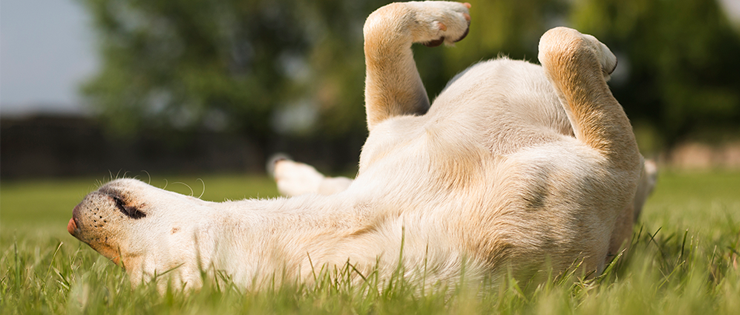
You’re supposed to know everything about your best friend, aren’t you? What they love, what they hate, what makes them laugh and what makes them cry. But, what if your best mate just so happens to be a dog?
I confess, my best friend has four legs and a tail; and his name is Chester. He is a middle-aged Staffordshire bull terrier and knows more secrets about me than I’d ever care to tell another human being! But whilst he may know more about me than any other, there are still some behaviours and idiosyncrasies that I am yet to decode with him. Like me, have you ever wondered why your dog does some of the quirky things you see? From the excessive licking, staring at ‘ghosts’ and chasing their tail, dogs do things we are often uncertain about. So, I thought I’d explain some of the unexplained here to help you get into the mind of your furry beloved.
Why does my dog:
Walk in circles before she lies down?
Not much research has gone into this, but we do have some idea of why it happens, and there are a few reasons. Going back to instinct, dogs never used to have human beds, so circling and pushing down the lumps and bumps of their unkept nesting area made for a more comfortable night’s snooze. Additionally, a round or two around the bed also may have ensured there were no predators or threats before slumping down for the next hour or so and a quick circle also might help deter the rats or other ‘bed bugs’ from settling in alongside them. Limited research has gone into discovering the reason for this repetitive circumnavigation, with dogs in lumpy beds more likely to circle the area before lying down. But as always, more experiments will give us a better idea.
Roll in gross stuff?
For us, its gross but for our dogs, OH do they LOVE to do this! Perhaps love is not the right word, but they are instinctively motivated to do this, and we believe it may be for a couple of reasons. The first reason is because it assists in essential camouflage. Smelling like someone else, particularly a predator can help to mask your own odour, making it more difficult to locate you and pose a threat. This may be advantageous for dogs nesting or attempting to protect their territory.
Alternatively, rolling in prey is just as beneficial, if not more so. Hiding your predatory odour makes it much easier to sneak up on potential breakfast or dinner. The unsuspecting bird or rabbit, may not see the dog coming, or, certainly won’t smell them coming at the very least. Dinner is served!
Eat grass
I often get asked this one, because some dog owners are concerned that their dog is ill. It seems to be a common thought; that eating grass is like medicine for a dog, and that they will do this when not well. In short, we can’t disprove this. But, there are other reasons why dogs eat grass, and it is usually a completely normal behaviour.
Dogs are NOT carnivores (strictly meat eaters). They are omnivorous, and plants form essential benefits to their survival. One advantage of consuming plants is that it helps to pass and clean out the gut. In the wild, there are no laxatives, or detox treatments, so finding a natural alternative is essential. Plants are not digested by mammals naturally, so they often go in one end and come out the other, giving the insides a good scrub. Although this is a completely normal instinct, if your dog ends up vomiting, or is repetitively eating grass, or is not their usual self, it may be a sign they have an upset tummy. Get in touch with your vet, if this occurs.
There are so many quirks our dogs have, and I hope over the coming weeks to get through some more of them. If you have a dog or pet who does something a little strange and you are left feeling perplexed, get in touch here and together, we can begin to solve the mystery. Whilst we may never fully know why our animals behave in strange ways, one thing I will always know is that there is very rarely no reason for it. The trick is to watch your pet and ask yourself … why do they do that? Once you get past that question, you’re on your way to knowing them just as well as they know you.
This article brought to you HIF Pet Insurance.